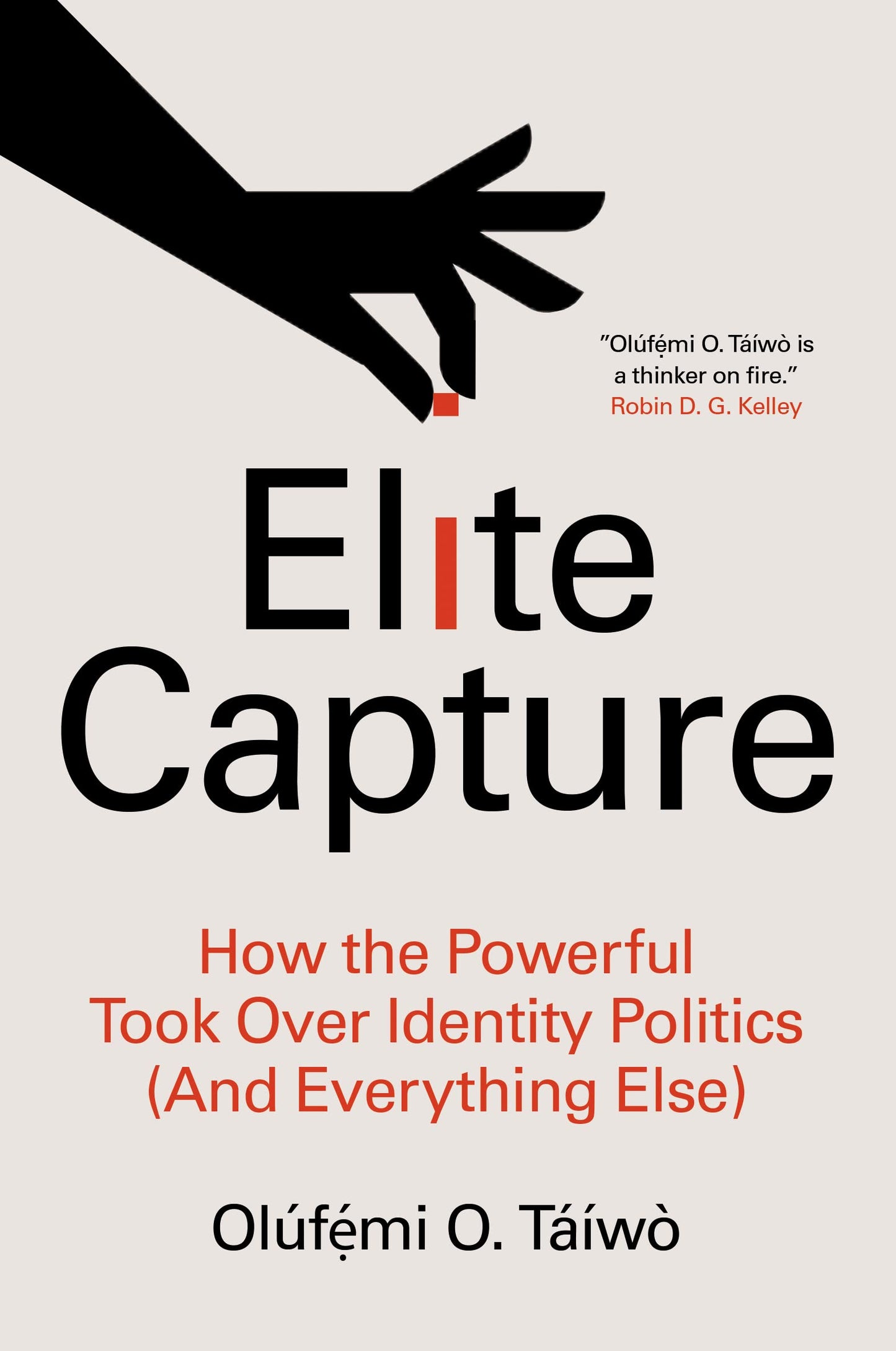Elite Capture
Elite Capture
How the Powerful Took Over Identity Politics (and Everything Else)
Olufemi O. TaiwoCouldn't load pickup availability
"Identity politics" is everywhere, polarizing discourse from the campaign trail to the classroom and amplifying antagonisms in the media, both online and off.
But the compulsively referenced phrase bears little resemblance to the concept as first introduced by the radical Black feminist Combahee River Collective. While the Collective articulated a political viewpoint grounded in their own position as Black lesbians with the explicit aim of building solidarity across lines of difference, identity politics is now frequently weaponized as a means of closing ranks around ever-narrower conceptions of group interests.
But the trouble, Olúfẹ́mi O. Táíwò deftly argues, is not with identity politics itself. Through a substantive engagement with the global Black radical tradition and a critical understanding of racial capitalism, Táíwò identifies the process by which a radical concept can be stripped of its political substance and liberatory potential by becoming the victim of elite capture--deployed by political, social, and economic elites in the service of their own interests.
Táíwò's crucial intervention both elucidates this complex process and helps us move beyond a binary of "class" vs. "race." By rejecting elitist identity politics in favor of a constructive politics of radical solidarity, he advances the possibility of organizing across our differences in the urgent struggle for a better world.
Table of Contents:
- Chapter One: Identity Politics, 2021
- Identity Politics: It's Not What You Think It Is
- Elite Capture: The Bigger Problem
- Chapter Two: What is Elite Capture?
- E. Franklin Frazier
- Who Run the World? Elites
- Does Democracy Matter?
- Capture at Every Scale
- Chapter Three: Reading the Room
- Carter G. Woodson
- The Ground We Stand On
- The Theory of Mis-Education
- Elite Capture: Game It Out
- Chapter Four: Being in the Room
- Introduction
- The View from Inside the Room
- Better Blueprints
- Chapter Five: Building a New House
- Changing Rooms: Paulo Freire
- Rebuild the House: The PAIGC
- We've Got This
- Getting Out the Hammers
- Building a New House
- Chapter Six: The Point is to Change It
- Andaiye
- What the Constructive View Asks of Us
Olúfẹ́mi O. Táíwò is Associate Professor of Philosophy at Georgetown University. He received his Ph.D. in philosophy at the University of California Los Angeles. He has published in academic journals ranging from Public Affairs Quarterly, One Earth, Philosophical Papers, and the American Philosophical Association newsletter Philosophy and the Black Experience.
Táíwò's theoretical work draws liberally from the Black radical tradition, anti-colonial thought, German transcendental philosophy, contemporary philosophy of language, contemporary social science, and histories of activism and activist thinkers.
His public philosophy, including articles exploring intersections of climate justice and colonialism, has been featured in The New Yorker, The Nation, Boston Review, Dissent, The Appeal, Slate, Al Jazeera, The New Republic, Aeon, and Foreign Policy.
He is the author of the book Reconsidering Reparations, published by Oxford University Press.
- Paperback: 168 pages
- ISBN-13: 9781642596885
- Item Weight: 8 oz
- Dimensions: 5.25 x 7.5 inches
- Publisher: Haymarket Books (May 3, 2022)
- Language: English

